Resource characterisation
Geothermal energy resources occur in a broad range of geological settings. The BGS Geothermal team has experience in assessing and characterising shallow and deep geothermal resources.
The expertise of the team and wider BGS includes:
-
- regional mapping and modelling of the geothermal resources
- site feasibility studies and modelling
- innovation of non-invasive techniques for improved characterisation and higher-accuracy exploration
- siting of suitable borehole drilling locations, de-risking of drilling operations and advancement of testing techniques
- advanced characterisation of the rock mass, temperatures and heat flows, and hydrogeological, chemical and microbiological properties
- upscaling from borehole scale to reservoir scale
- understanding the role of faults and fractures
- coupled hydrothermal models and resource estimation methods
- efficiency of heat transfer and the impact of heat dispersion
Resource sustainability and monitoring
The sustainable management of geothermal resources involves an appropriate utilisation rate that can be supported by the system for a long time. This is fundamental to avoid overexploitation. For example, having extraction rates higher than the natural replenishment of the system can result in a decline in either temperature or fluid volumes. Another example is having many users of the same resource without appropriate management.
Sustainable management of geothermal resources requires a good understanding of the geological setting and adequate monitoring of the system. BGS has experience in collecting a wide variety of physical and chemical data to monitor the state of geothermal reservoirs. Our research also aims to inform relevant regulation that has been developed to manage the resource, as well as optimised monitoring networks and new techniques for non-invasive monitoring of heat and flow.
BGS was a partner in the Horizon 2020 Managing Urban Shallow geothermal Energy (MUSE) project, investigating the use of shallow geothermal energy resources and use in urban areas across Europe.
Research was carried out at the BGS-operated Cardiff Urban Geo-Observatory, which monitors temperatures and water level changes via a large network of boreholes distributed across the city of Cardiff, including an instrumented, open-loop ground source heat system.
System understanding
Exploitation of geothermal resources requires a good understanding of geological structures, anticipated temperatures and hydrogeological behaviour of the system, to confirm viability of the resource for commercial use. Our research aims to provide a better characterisation of the geothermal resources in the UK and enhance our understanding of the subsurface processes that control the availability of heat in specific settings.
BGS takes part in international projects that aim to develop a better understanding of deep geothermal systems, including:
- the flow and heat transfer for utilisation of fractured granites in the UK as part of the Geothermal Power Generated from UK Granites (GWatt) project
- the behaviour of fluids in hot and superhot systems as part of the REFLECT project
- GEMex, a cooperative project between Europe and Mexico for the development of enhanced and superhot geothermal systems
Our team is contributing to the ‘Hypogene karst: genesis and implications to optimisation of low enthalpy energy resources‘ project, a NERC-funded project led by the University of Manchester that aims to provide a better understanding of the genesis of these systems and the potential implications for circulation of deep fluids and low-enthalpy geothermal systems.
The potential of flooded mines for geothermal energy and for energy storage are key components of BGS research as part of the Geothermal energy from mines and solar geothermal heat (GEMS) project, led by the Durham Energy Institute. In addition to BGS expertise, the project will make use of the research infrastructure available at the UK Geoenergy Observatory in Glasgow, where they will perform field experiments.
Environmental monitoring for geothermal
Geothermal energy construction (including drilling) and operations have the potential to cause environmental changes. Regulatory and permitting requirements vary depending on the type of geothermal technology used; they can include monitoring of surface and groundwater resources (quality; temperature), air quality or ground stability.
BGS research aims to improve the understanding of these potential environmental changes and to provide an evidence base to inform future regulation.
Our team has extensive practical experience of environmental monitoring through construction and operations of the UK Geoenergy Observatories. The monitoring data is openly available as a series of data packs and sensor data streams.
BGS also works with the Mining Remediation Authority and environmental regulators across the UK.
Governance policy and regulation
We work with a range of stakeholders including government, regulation, industry, and academia, and provide general expertise and advise on geothermal energy in the UK. This includes geoscientific expertise and knowledge that support decision making and the regulation of geothermal energy.
Research into the geothermal energy sector in Northern Ireland
Together with Arup, the BGS team produced a research report for the Northern Ireland Department for Economy entitled Research into the geothermal energy sector in Northern Ireland. BGS’s role in the report included a comparison of geothermal regulatory frameworks from other European countries and the identification of priority policy mechanisms that could aid the development of the geothermal energy sector in Northern Ireland.
UK deep geothermal energy White Paper
BGS was commissioned by the Department for Net Zero and Energy Security and the North East & Yorkshire Net Zero Hub to develop a UK deep geothermal energy White Paper. The paper aims to provide an evidence-based assessment and ‘case making’ document to help accelerate the development and deployment of deep geothermal energy projects in the UK. The paper was published in July 2023.
Research infrastructures and laboratories
UK Geoenergy Observatories
The UK Geoenergy Observatories are research infrastructures that enable at-scale investigation and innovation in shallow geothermal technologies. They are open to public and private sectors and academic organisations in the UK and internationally.
For more information please contact UKGEOS enquries (ukgeosenquiries@bgs.ac.uk).
The Glasgow Observatory (UKGEOS Glasgow) comprises boreholes, monitoring equipment and geothermal infrastructure in abandoned, flooded coal-mine workings. It is a research facility for investigating mine water geothermal, thermal storage and environmental change.
The Cheshire Observatory (UKGEOS Cheshire) comprises open loop, closed loop and advanced monitoring boreholes to enable detailed investigation, monitoring and imaging for shallow geothermal energy and energy storage in a sandstone aquifer. Currently in advanced construction, it is due to open in 2024.
The Cardiff Urban Geo-Observatory is a city-wide monitoring network that collects data on groundwater temperatures and water levels, including an instrumented, open-loop ground source heat system. Current studies focus on shallow geothermal heat recovery and storage in a complex geological environment changed by industrialisation and urban growth.
Laboratories
Online maps and tools
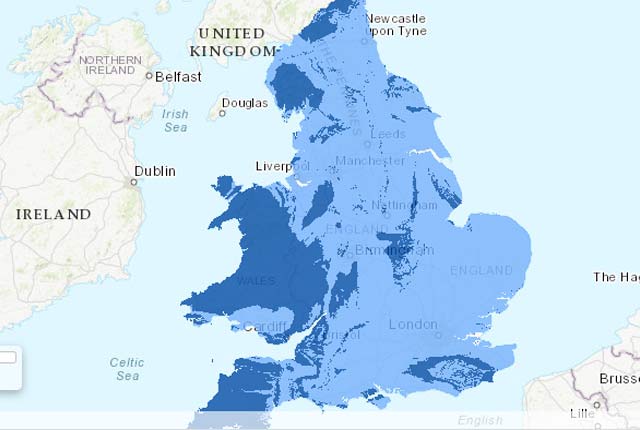
Open-loop GSHP screening tool
The BGS and the Environment Agency have together developed a web-based tool that maps the potential for open-loop ground-source heat pump installations in England and Wales.
You may also be interested in
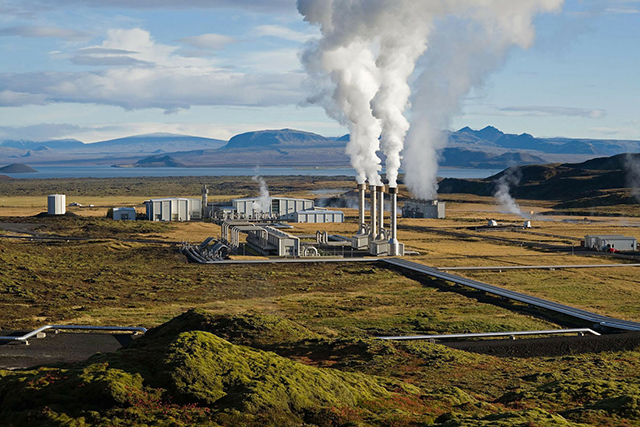
Geothermal energy
Investigating geothermal energy — energy stored in the form of heat beneath the surface of the solid Earth.
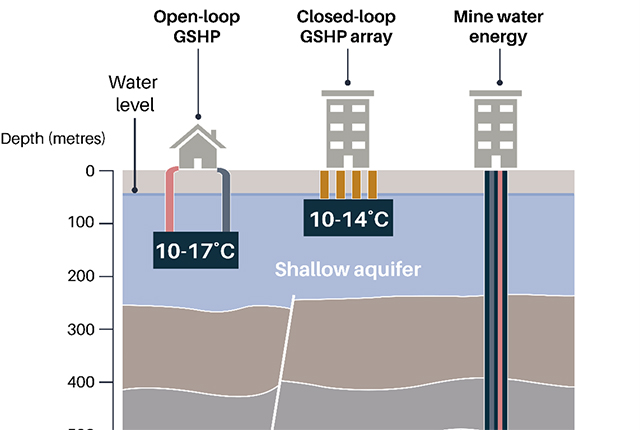
Geothermal technologies
Geothermal energy is available across the UK in different geological settings. It can be used to produce thermal (and in some places electrical) energy for a wide range of uses.
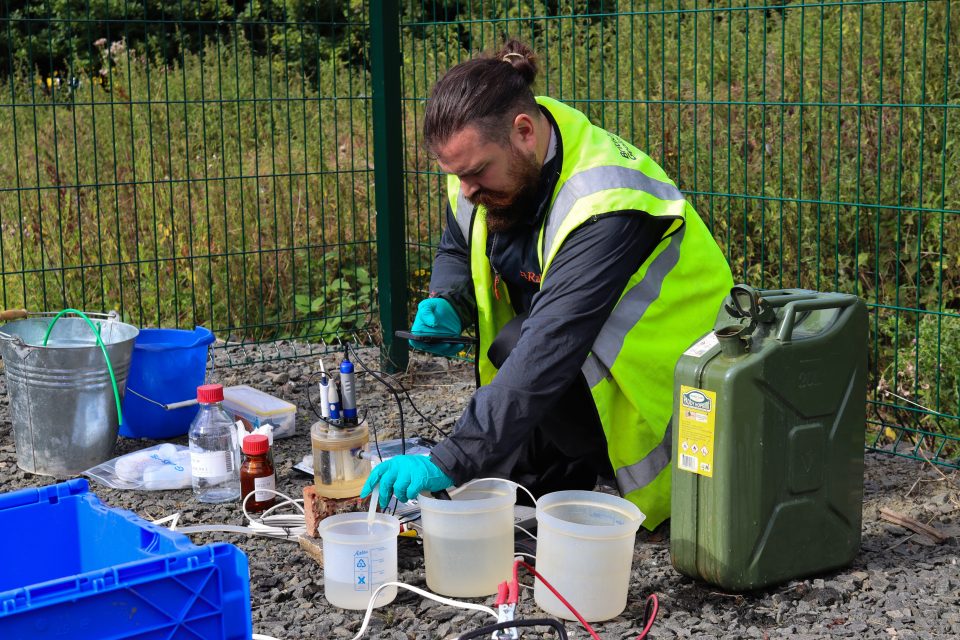
What we do: BGS projects and UK geothermal potential
Active and previous research projects.
Related news

Goldilocks zones: ‘geological super regions’ set to drive annual £40 billion investment in jobs and economic growth
10/06/2025
Eight UK regions identified as ‘just right’ in terms of geological conditions to drive the country’s net zero energy ambitions.
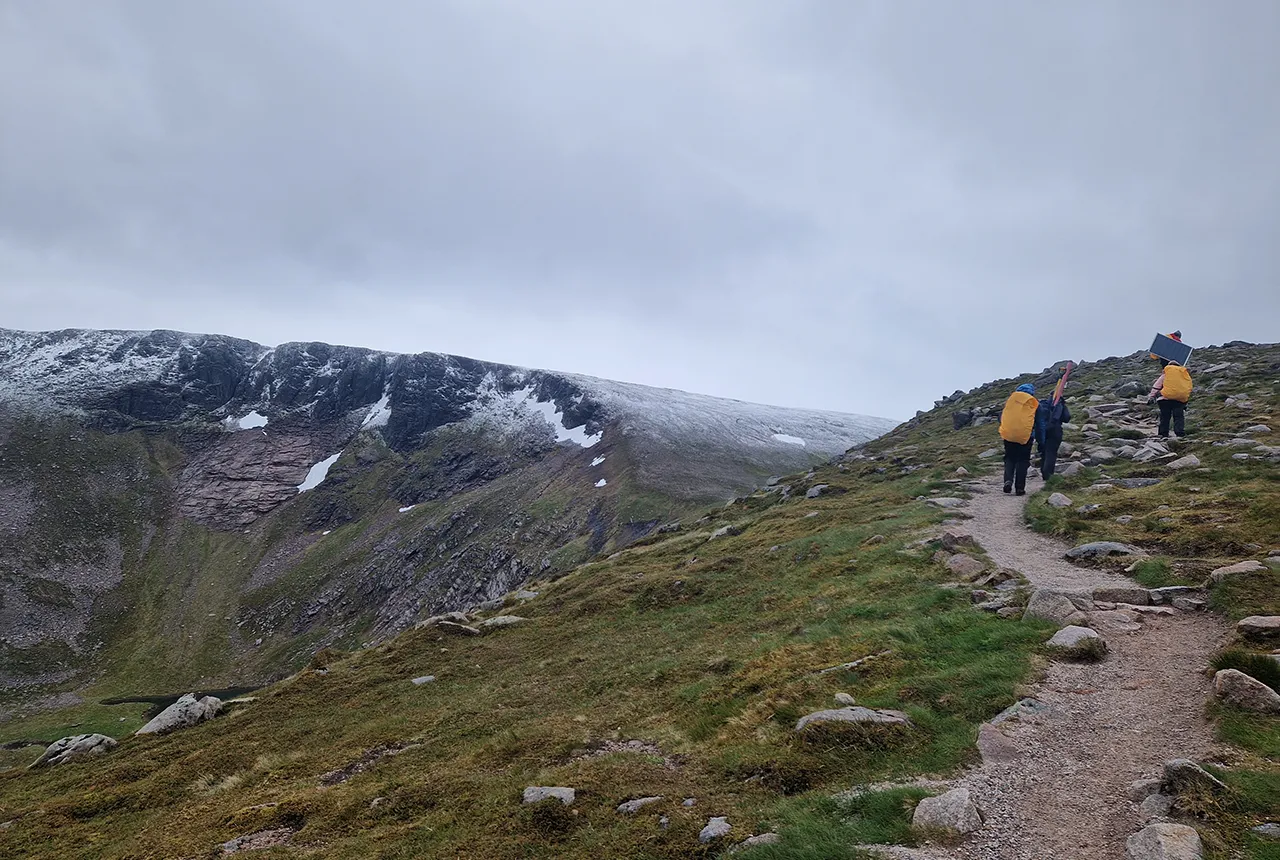
Exploring Scotland’s hidden energy potential with geology and geophysics: fieldwork in the Cairngorms
31/03/2025
BUFI student Innes Campbell discusses his research on Scotland’s radiothermal granites and how a fieldtrip with BGS helped further explore the subject.
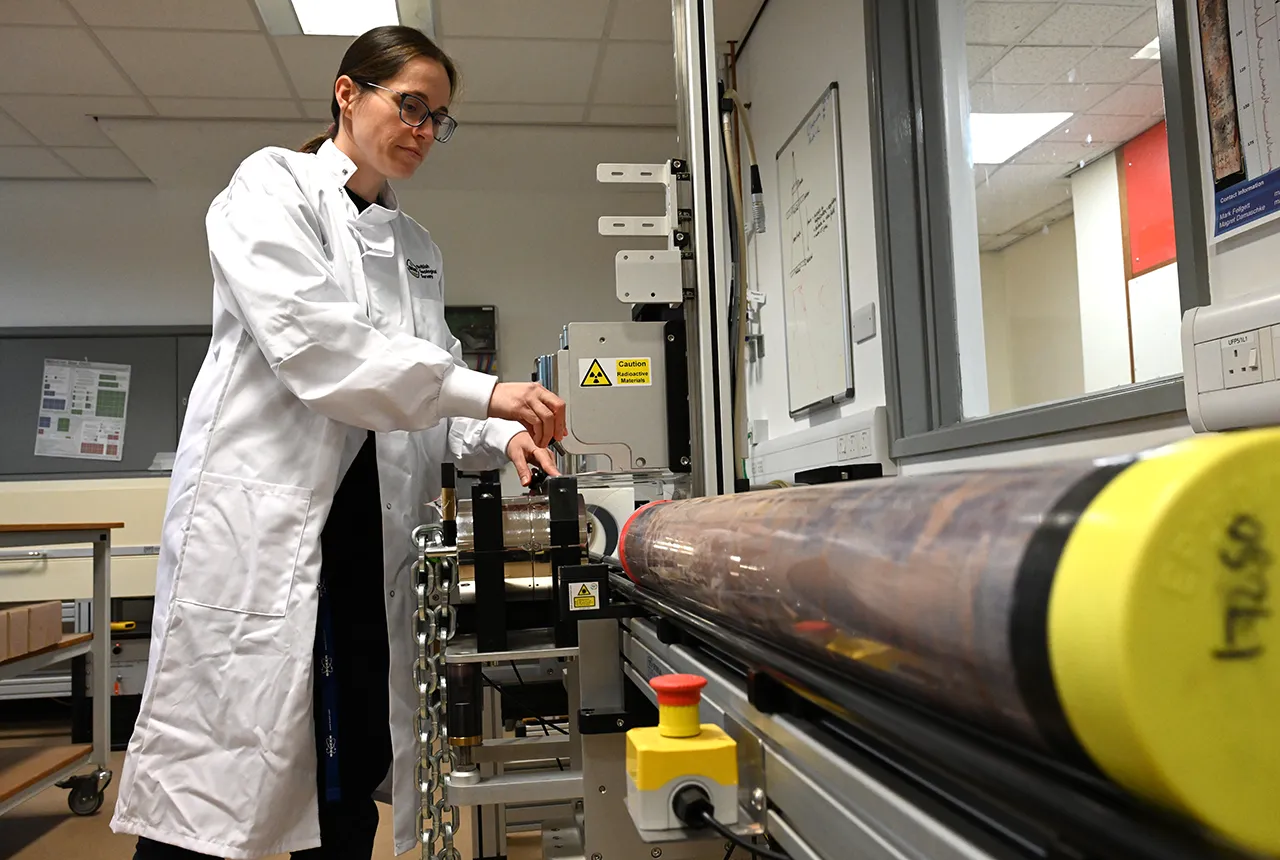
Prehistoric power: 250-million-year-old rocks could contain secrets to net zero future
05/12/2024
BGS has completed a comprehensive scan of Mercia Mudstone rocks that could hold geological secrets of the UK’s past and provide a boost for net zero.
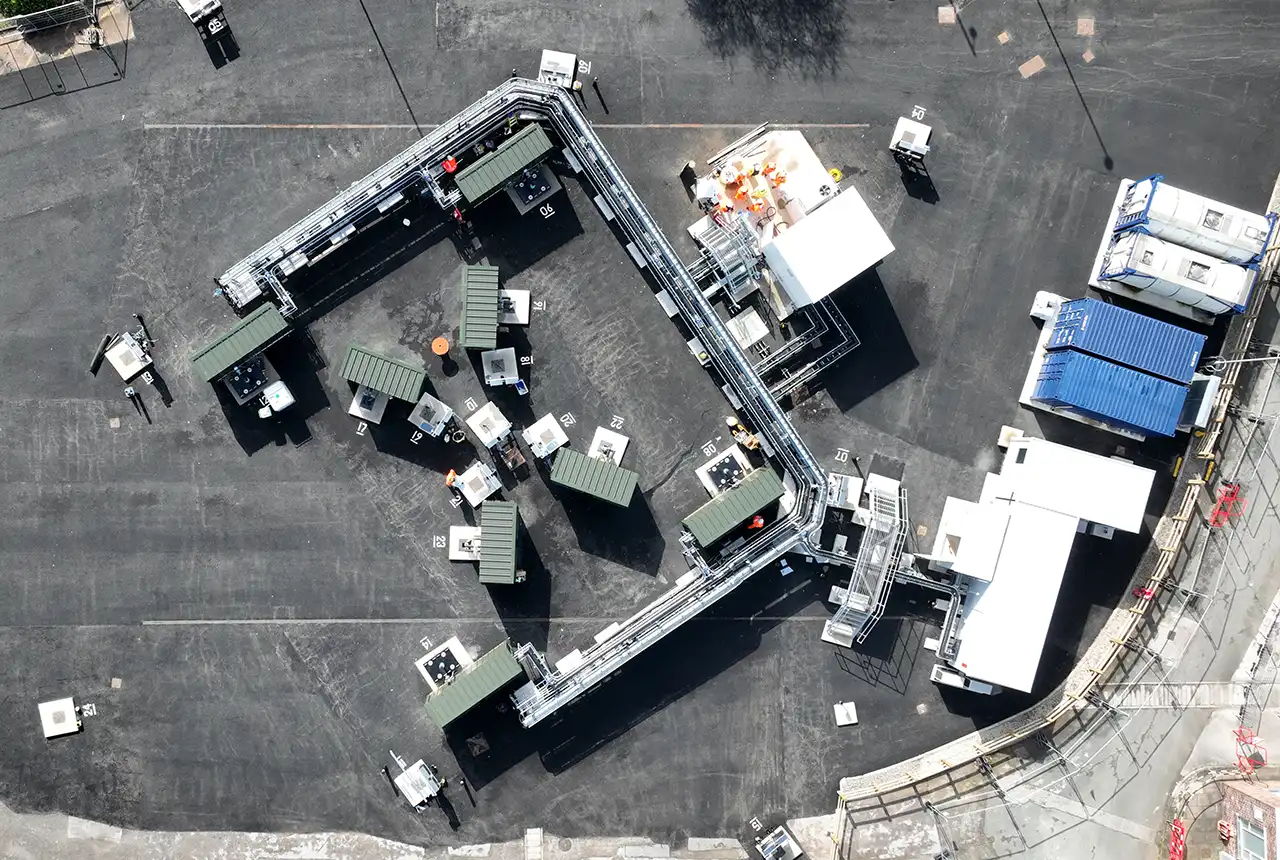
World-class facility creates new opportunities for geothermal energy in Cheshire
10/10/2024
The £8.3 million underground observatory will enhance the UK’s knowledge on the clean energy required to decarbonise heating.
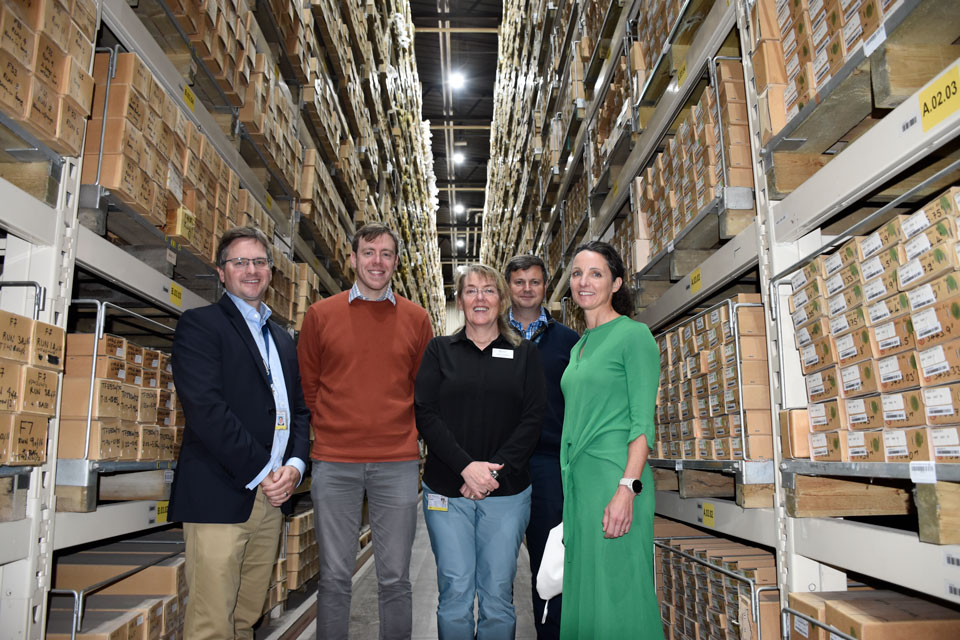
Local MP checks in on development of new geothermal ‘living laboratory’ in Nottinghamshire
19/09/2024
BGS has reached the halfway mark on its ambitious ground-source heat pump project at its headquarters in Keyworth, Nottinghamshire.
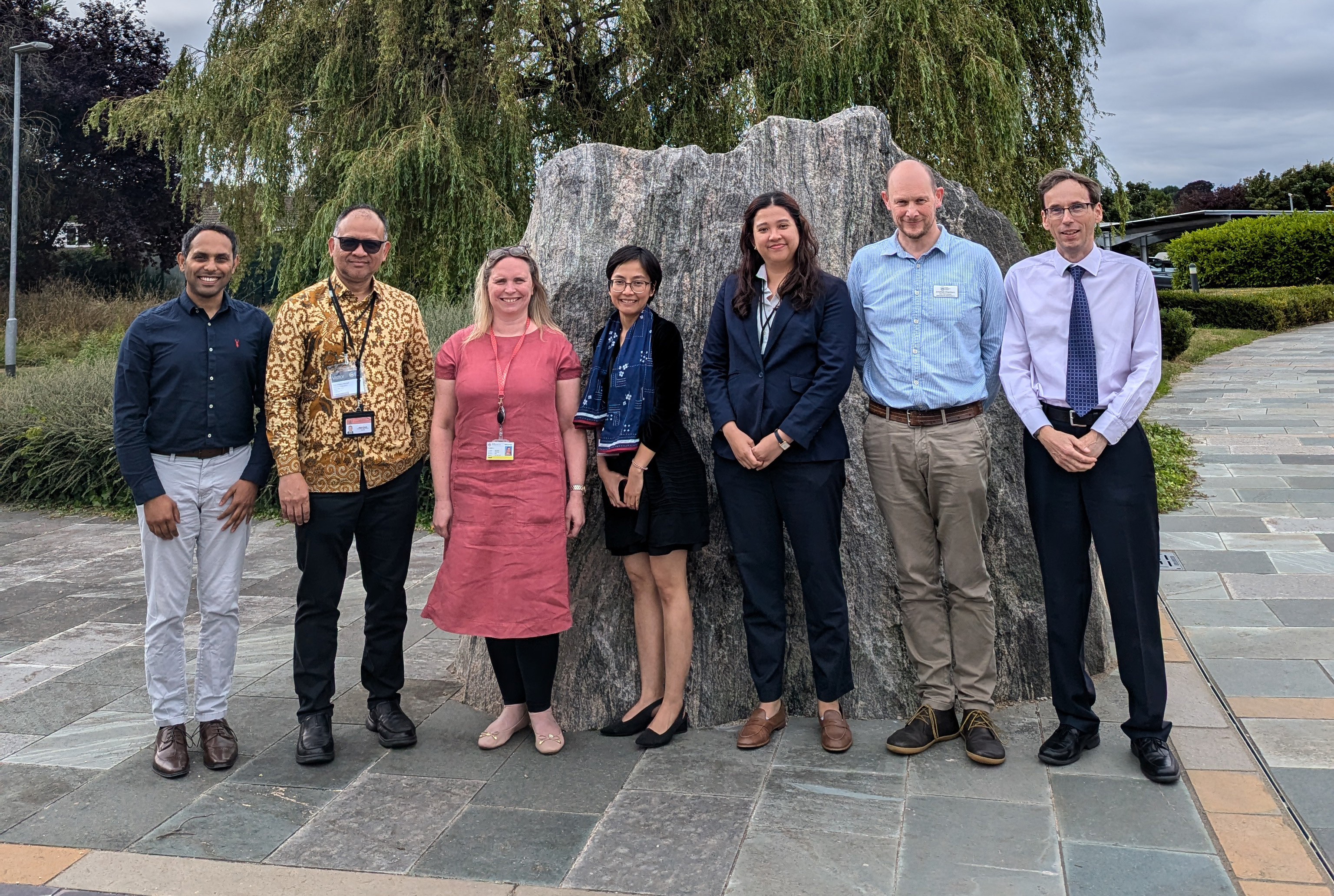
Visit by Indonesian Embassy representatives to BGS
27/08/2024
Strengthening BGS/Indonesia scientific research partnerships to address the complex challenges Indonesia faces from natural hazards and maximising opportunities from mineral resources and geothermal energy.
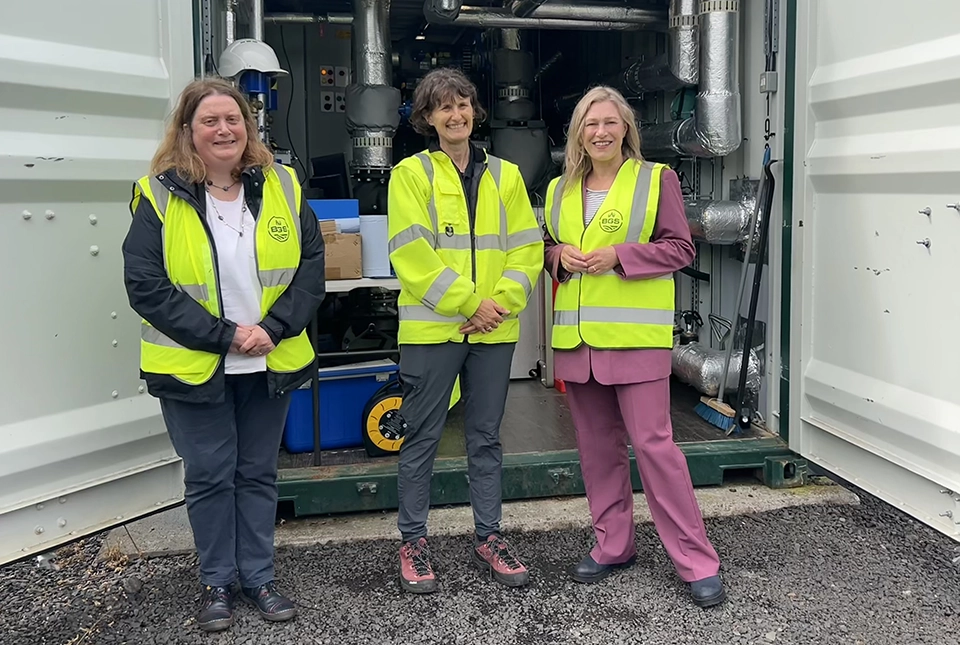
Unlocking our geothermal potential: a Scottish Government visit to the Glasgow Observatory
15/08/2024
Gillian Martin MSP visits the UK Geoenergy Observatory in Glasgow to learn about geothermal energy and see the research being carried out at the facility.
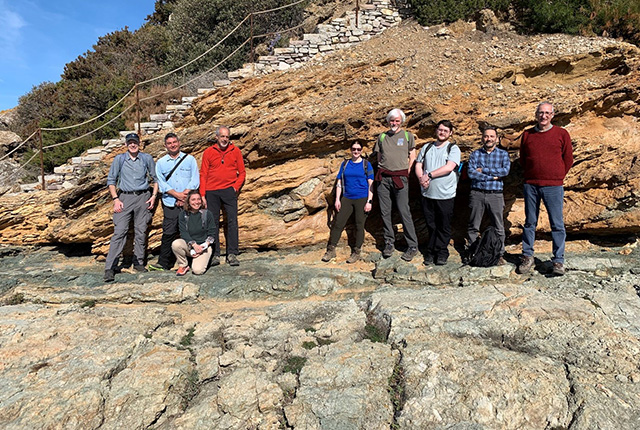
The heat beneath our feet: BGS field visit to Tuscan geothermal systems
05/07/2024
BGS visits the active and fossilised geothermal systems of southern Tuscany, Italy.
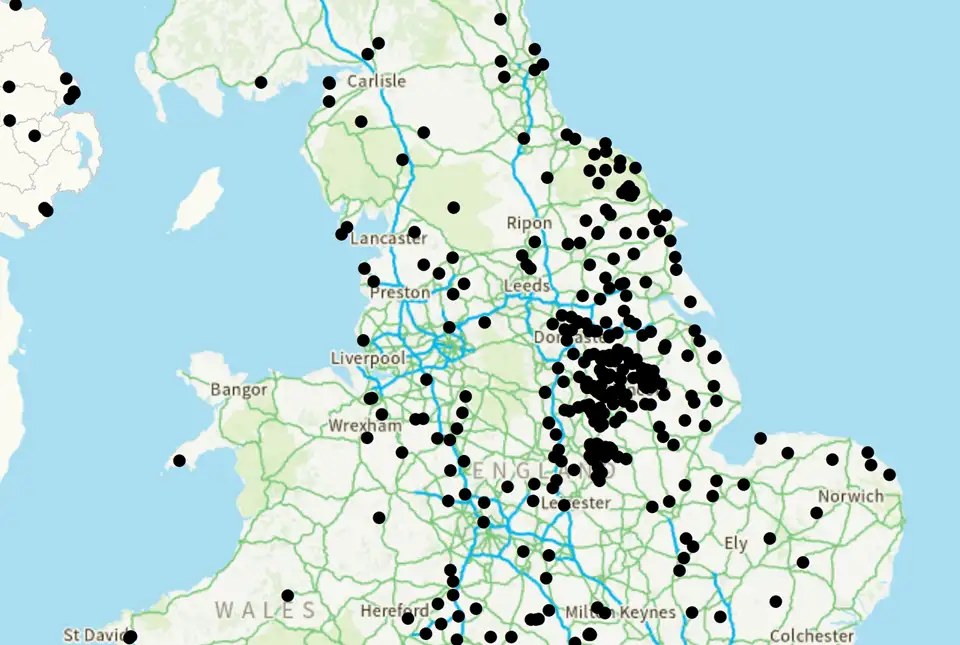
UK legacy geothermal catalogue released in digital format for the first time
18/04/2024
BGS has released the first digital version of the UK legacy geothermal catalogue of subsurface temperature measurements, rock thermal conductivity measurements and heat flow calculations.
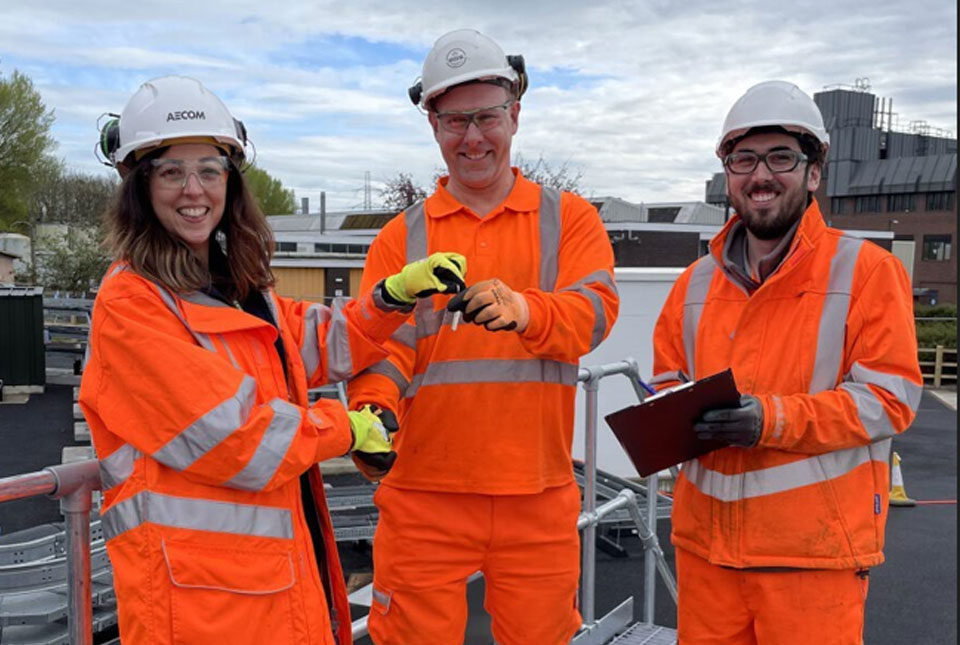
New underground observatory open for research
09/04/2024
Construction has been completed on the Cheshire Observatory and the facility is now open for research activities.
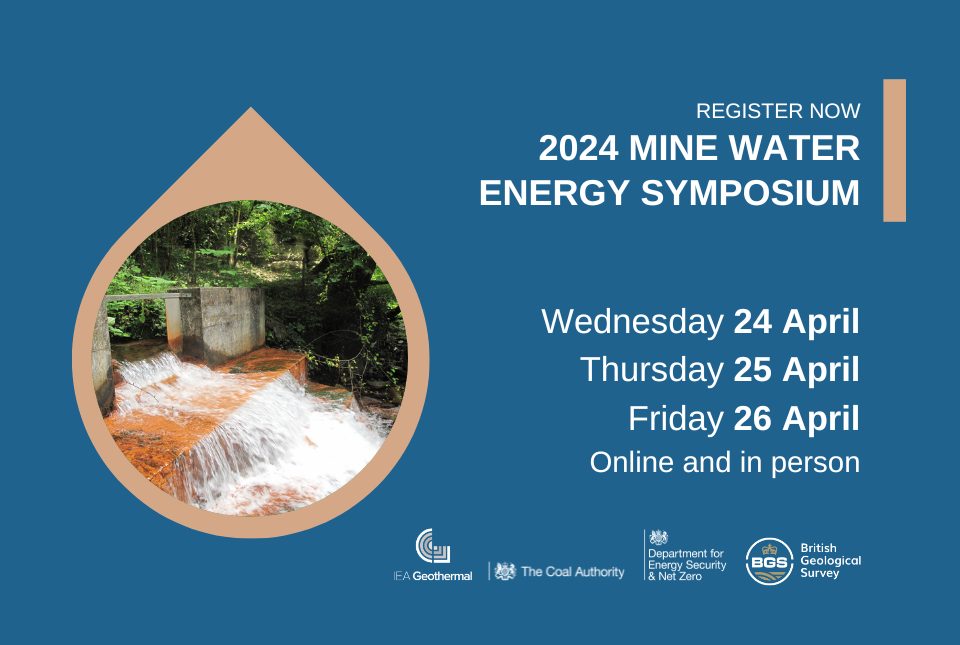
2024 Mine Water Energy Symposium
Event from 24/04/2024 to 26/04/2024
Now in its fourth year, the 2024 Mine Water Energy Symposium will be held in person for the first time in April 2024, with online streaming functionality.
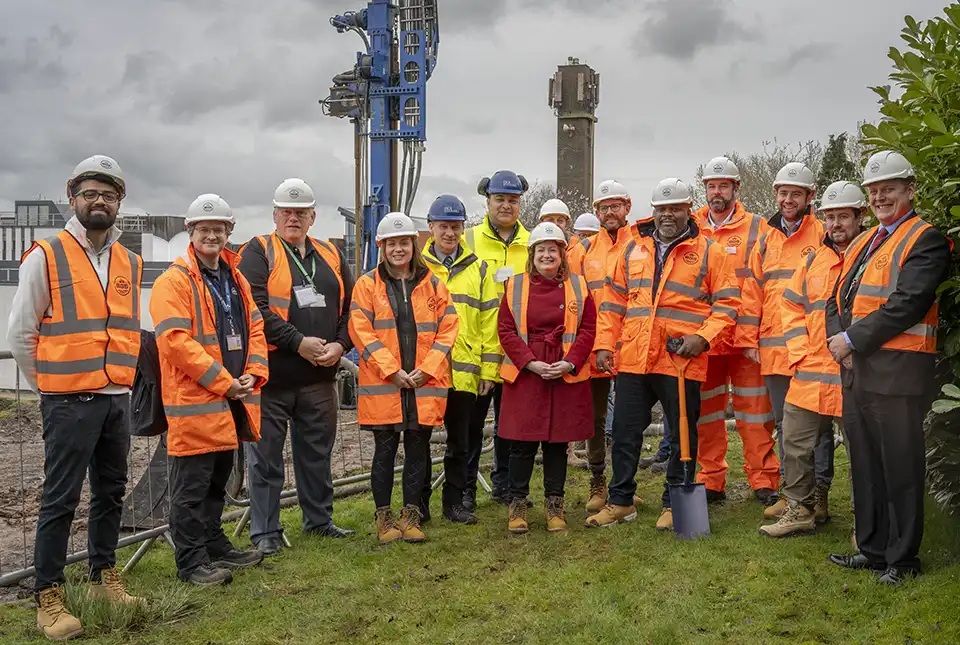
Local MP helps BGS launch a ‘living laboratory’
05/03/2024
BGS is implementing a low-carbon heating system to help meet its net zero targets and provide data to the public.

